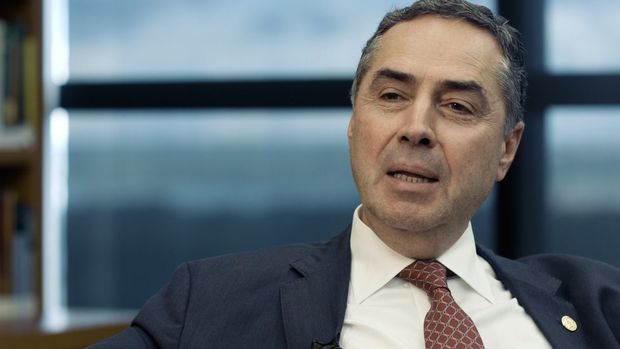Latest Photo Galleries
Brazilian Markets
12h03 Bovespa |
-0,14% | 129.028 |
16h43 Gold |
0,00% | 117 |
12h17 Dollar |
+0,39% | 5,0873 |
16h30 Euro |
+0,49% | 2,65250 |
ADVERTISING
Supreme Court Justice Barroso Bars Corruption Convictions from Temer's General Pardon
03/13/2018 - 08h12
Advertising
REYNALDO TUROLLO JR.
FROM BRASÍLIA
In a new decision regarding the general pardon signed by President Michel Temer at Christmastime in December of last year, Federal Supreme Court (STF) Justice Luís Roberto Barroso detailed, on Monday (the 12th), in which cases the decree would be suspended due to unconstitutionality and defined new requirements for the sections that weren't suspended to be applied, including the portion of term to be served to at least one-third of the original sentence - the decree's text had stipulated one-fifth.
Barroso ordered that persons condemned for so-called white-collar crimes (including corruption, speculation, influence peddling, national financial system crimes under the Bidding Law statute, money laundering, hiding assets, racketeering) and those condemned who weren't paying fines ordered by the Courts would be declared outside of the scope of the general pardon.
| BBC Brasil | ||
 |
||
| Federal Supreme Court (STF) Justice Luís Roberto Barroso |
The decision affirms the re-establishment of definitions regarding positions that had been recommended by the National Council of Criminal and Penitentiary Policy but hadn't been followed by Temer.
The Court Justice also accepted a request from the Federal Prosecutor General's Office (PGR) barring the pardon in cases where appeals by the prosecutor were pending and for those condemned who had already had their sentences reduced by substituting community service for a prison term.
The general pardon may still be applied in cases of non-violent or non-life-threatening crimes with two conditions: the prisoner must have already served at least a third of his sentence (in Temer's previous text it was one fifth) and that the original sentence had been for less than eight years of prison (in the original decree there had been no limit).
Translated by LLOYD HARDER



